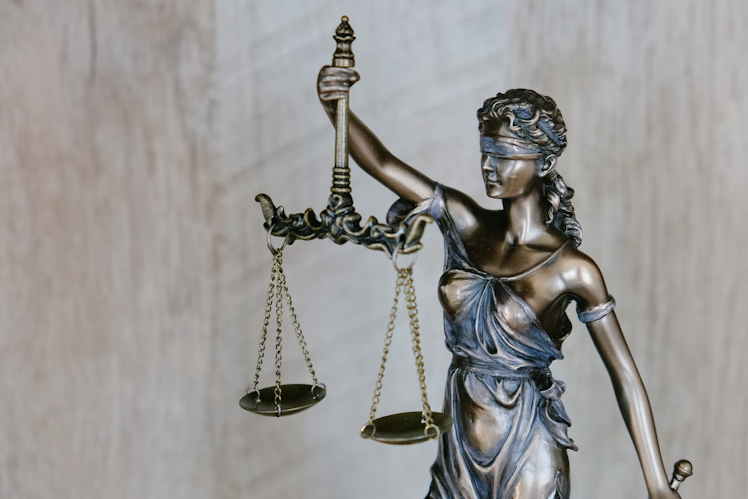Trending Assets
Top investors this month
Trending Assets
Top investors this month
4 Issues With Raising the FDIC Coverage Limit
As much as I'm doing my best to avoid talking about Silicon Valley Bank, Silvergate, Signature Bank, Credit Suisse, and other big issues that have been flooding the media recently, the one thing that made me want to say those names in an indirect way is hearing Congress people talk about making the FDIC limit unlimited.
There are a couple of issues with making the FDIC limit unlimited:

Photo by Tingey Injury Law Firm on Unsplash
1) It creates a moral hazard on its own
Why should banks be more careful with how they lend consumers' funds when an unlimited FDIC limit allows banks to not worry about the repercussions of making riskier loans? The whole Silicon Valley Bank fiasco happened because the company was irresponsible with the way it was investing its money. Sure, their asset books were filled with some of the safest assets in the world but it doesn't mean that the value of those assets will remain the same, especially if they're longer-duration assets.
2) It increases inequality
The inequality issue comes in many forms. One form is that the rich will only benefit from the growth in the FDIC limit. It's rare for a middle-class person to have over $250K in savings unless they're very old and have been frugal for a long time.
Another form of inequality that can arise from increasing the FDIC limit is that the wealthy are going to become less willing to spread their wealth across multiple banks. For those that say that having many different bank accounts is difficult to manage, consider the fact that having your money across different BANKS is easier to manage than having many bank accounts within ONE BANK. That way, you associate an account with a bank name instead of a number, which makes managing numerous bank accounts easier. We've seen the benefits of having the rich diversify their savings across numerous banks as that made it easier for minority-owned banks as well as other smaller banks to have deposits. In a way, the $250K FDIC limit is probably why many of the smaller banks have millions and billions of dollars worth of deposits and are able to make more loans within their communities.
By increasing the FDIC limit to unlimited, why should any wealthy person want to spread their money across multiple bank accounts?
3) Higher costs + Anti-Competitiveness effects
The creation of the FDIC didn't come free for banks. With the creation of the FDIC, banks have to pay a premium in order to ensure coverage for their depositors. These premium rates are based on the size of the banks, the conditions of the banking industry, and the composition of their depositor base. Those banks with riskier business practices and banks who have depositors that are financially weak will have to pay higher premiums.
By increasing the FDIC coverage, you're also increasing the premiums that banks need to pay to ensure FDIC coverage for their depositors. While bigger banks aren't generally affected by the FDIC rates because their premiums are tiny compared to their profits, for smaller banks, the FDIC premiums are some of their largest expenses. Increasing the FDIC coverage will make it harder for smaller banks to keep the lights on.
Generally, the banks would pass on the rising FDIC costs onto their customers in the form of higher interest rates on loans as well as higher fees for services. In that case, bank customers will be hit harder with more fees. Many will want to move their money into the big banks because the big banks won't have more to pass onto their customers as compared to the smaller banks.
4) Systemic Risk
The people who keep saying that a bank, that caters primarily to the top 0.0001%, is a systemic risk to the global economy are overexaggerating the effects of these banking collapses. Those same people, who want to make the FDIC limit unlimited, are only advocating for policies that will lead to the creation of a true systemic risk in the global economy: the paradigm shift where a small number of banks hold nearly all of the bank deposits.
With unlimited FDIC coverage, borrowers will be less willing to withdraw their money out of a financial giant that is undergoing a "Lehman moment" because they will think that the FDIC will save them. Also, they might even consider adding more money into their bank account with that bank. Once the bank collapses, the FDIC will have to pay out huge sums of money to people. Even if the depositors got all their money, the domino effects that come with the financial giant's collapse will cause more financial giants to collapse and the FDIC's resources will be strained like never before.
It's likely that the FDIC might not even be able to provide everyone with the money that they were supposedly insured for. Some will say that to hedge against that, the FDIC will jack up premium rates on those other few financial giants. Then those financial giants will pass those higher costs onto consumers and consumers will start to consider withdrawing their money, incentivizing the FDIC to increase premium rates on those banks further. Even the thought of the FDIC not being able to fulfill its promise of insuring depositors will create a bigger bank run and lead to the demise of some of the financial giants we know of today.
Overall, while FDIC insurance provides an important safety net for depositors and helps to promote financial stability, increasing the insurance limit could create unintended consequences and increase systemic risk. And no, I don't think Bitcoin should ever be considered a safe haven from a banking crisis.
I hope this picture brings calmness

Photo by Matteo Badini on Unsplash
unsplash.com
Photo by Matteo Badini on Unsplash
Yachts in Montecarlo port – Download this photo by Matteo Badini on Unsplash
Already have an account?